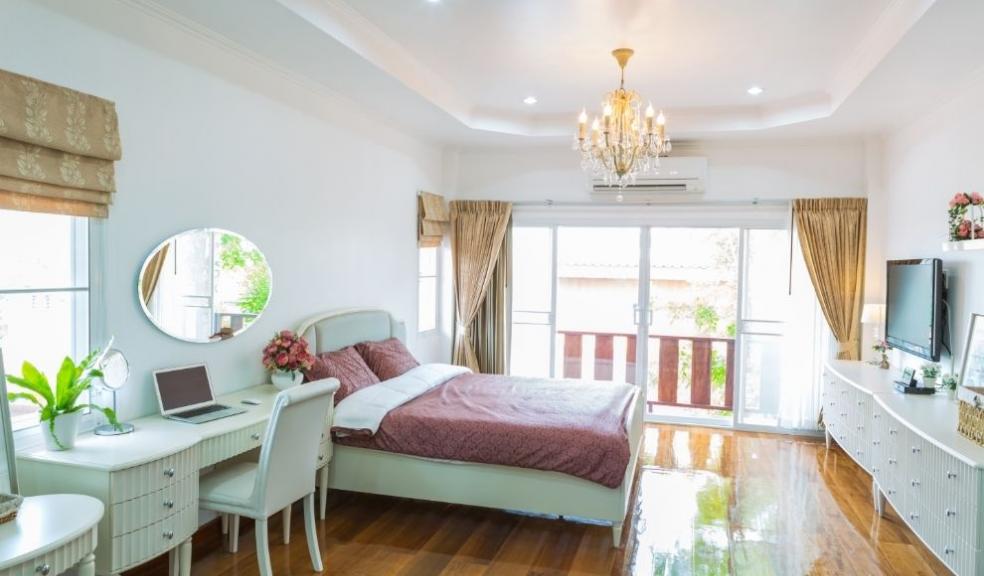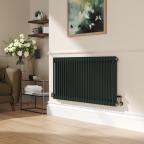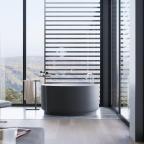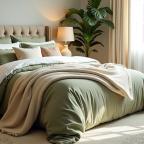
Pandemic inspires 40% of UK population to spend more money on furniture
Research from Manor Interiors, the expert in build-to-rent furnishing solutions, reveals that, while the pandemic resulted in people spending less money on furniture for the home, it still accounts for almost half of the average annual household upkeep bill.
During the first year of the pandemic year, 2020, we spent £14.4 million on furniture. This marks a decline of 1.3% compared to 2019 when the total was £14.6 million.
Hardly surprising given research by Manor Interiors found that 49% of the UK population says they reduced their expenditure on non-essential goods, including furniture, during the pandemic.
Despite this decline, furniture still accounts for, by far, the largest portion of annual household expenditure. The average annual spend on household goods and services currently sits at £2,112. Furniture and furnishings accounts for 46.3% of this expenditure, an annual average spend of £978.
This is compared to routine household maintenance costs (16.5%); appliances (10.6%); floor coverings (9.4%); house and garden tools (7.1%); textiles (5.4%); and glassware, tableware, and utensils (4.7%).
It also seems that, with the pandemic almost behind us, household spends are set to increase once again.
The research by Manor Interiors also found that 40% of the UK population say that the experience of having to spend more time at home will likely result in them purchasing better quality household items going forward, even if it means spending more money than they have done in the past.
CEO of Manor Interiors, Farhan Malik, commented:
“Sometimes, it takes a global pandemic for us to step back and evaluate our lifestyle and our spending habits. It also gives perspective on what is and is not an essential purchase. So it should be no surprise that we’ve been spending less money on household items recently.
While we’re finally finding our way out of the pandemic, the influence of the last two years looks set to have a lasting impact on what we buy for our homes.
One of the biggest lessons many of us have learned is the value of the home; the importance of having a comfortable, welcoming, and enjoyable sanctuary that, regardless of what happens in the world, is there for us when we need it.
So as we now start to look forward, many of us will now spend more money on better quality items to ensure our homes are fit for purpose for any scenario life throws at us.”
|
Table shows total UK annual furniture expenditure alongside average yearly change |
|||
|
Year |
Expenditure (millions £) |
Expenditure (full number £) |
Ave change % |
|
2014 |
£13,831 |
£13,831,000,000 |
|
|
2015 |
£14,088 |
£14,088,000,000 |
1.9% |
|
2016 |
£14,673 |
£14,673,000,000 |
4.2% |
|
2017 |
£15,300 |
£15,300,000,000 |
4.3% |
|
2018 |
£15,043 |
£15,043,000,000 |
-1.7% |
|
2019 |
£14,590 |
£14,590,000,000 |
-3.0% |
|
2020 |
£14,398 |
£14,398,000,000 |
-1.3% |
|
|
|
|
|
|
|
|
average (2015 to 2020) |
0.7% |
|
|
|
|
|
|
Table shows average annual UK household spend on household goods and services |
||
|
Category |
Ave annual spend |
Proportion of total spend |
|
Furniture and furnishings |
£978 |
46.3% |
|
Routine household maintenance |
£348 |
16.5% |
|
Household appliances |
£224 |
10.6% |
|
Floor Coverings |
£198 |
9.4% |
|
Tools and equipment for house and garden |
£151 |
7.1% |
|
Household textiles |
£114 |
5.4% |
|
Glassware, tableware and household utensils |
£99 |
4.7% |
|
Average annual spend |
£2,112 |
100% |
|
Source - Nimblefins: Who spends the most making a house a home? |
||
|
|
|
|
Survey results
Survey of 1,115 UK population carried out by Manor Interiors via consumer research platform Find Out Now (14th October 2021)
|
During the pandemic have you cut back on spending for non-essential household items such as furniture, appliances etc? |
|
|
Answer |
Respondents |
|
No |
51% |
|
Yes |
49% |
|
|
|
|
Having spent more time at home during lockdown, will you purchase better quality household items in the future even if it requires spending more? |
|
|
Answer |
Totals |
|
Yes |
40% |
|
No |
60% |
|
|
|









